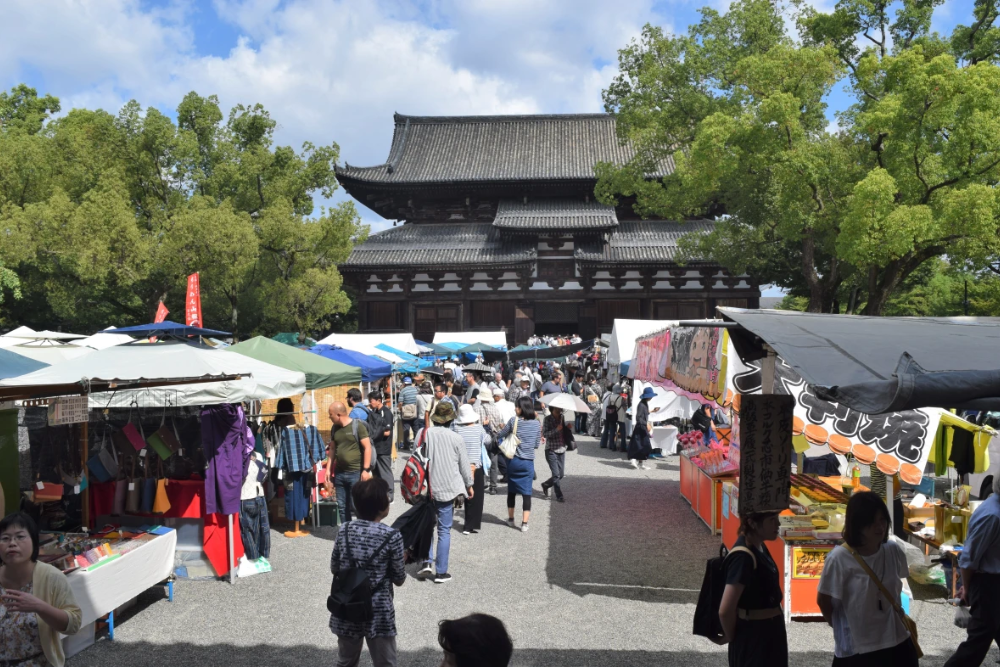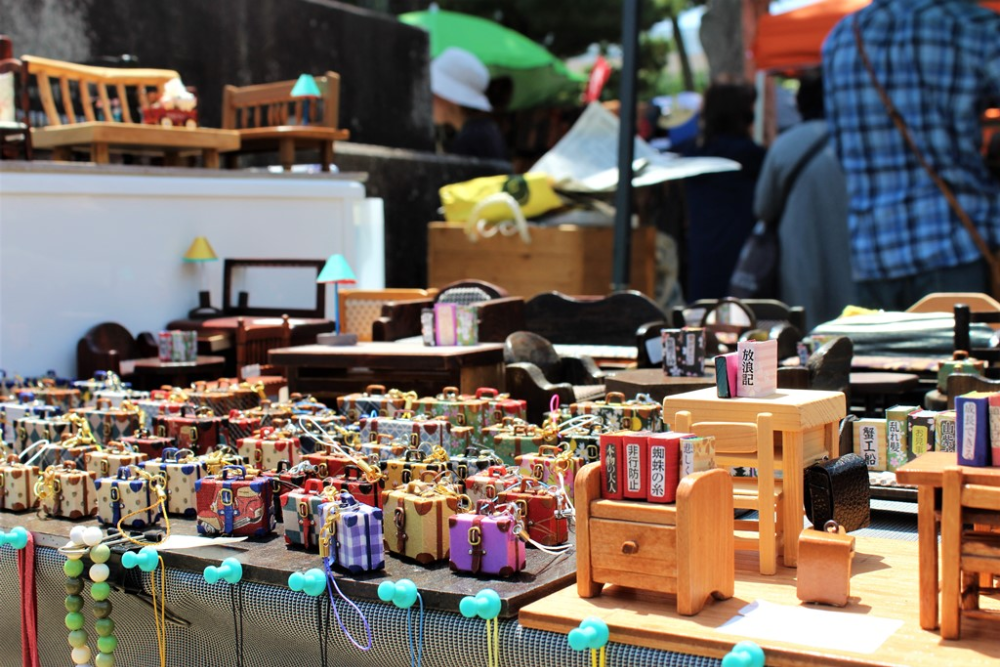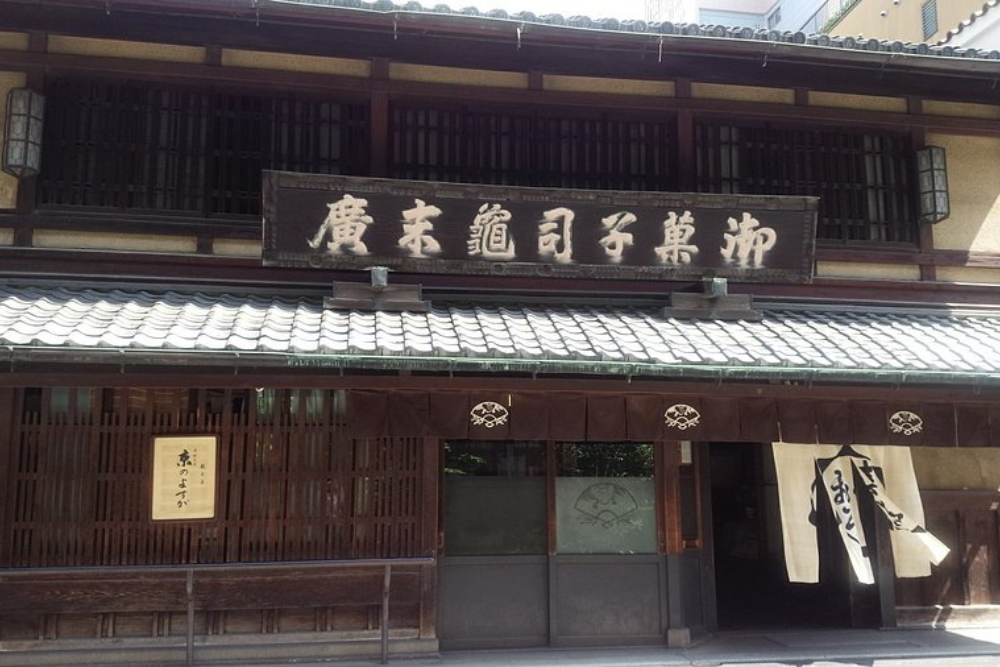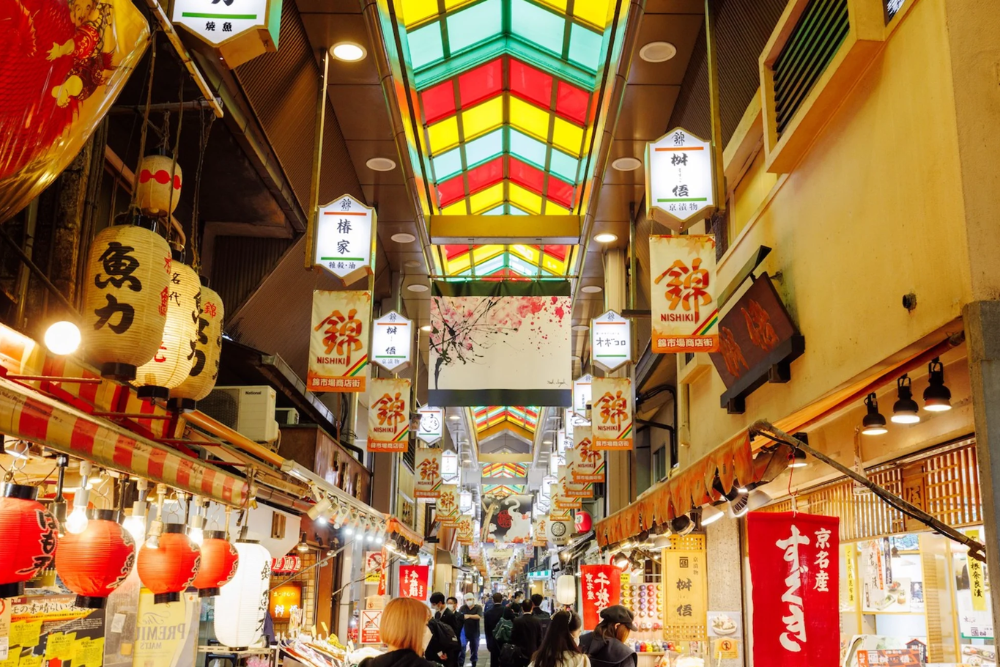Kyoto, the cultural heart of Japan, is renowned for its rich history, stunning temples, and deep-rooted artisan traditions. From centuries-old pottery techniques to meticulously crafted textiles, the city remains a haven for those seeking authentic, handcrafted goods. Whether you’re looking for traditional ceramics, handwoven fabrics, or intricate woodwork, Kyoto’s craft markets and artisan shops offer a glimpse into the city’s unparalleled craftsmanship.
In this guide, we’ll explore the best craft markets and artisan shops in Kyoto, where you can discover unique, handmade treasures while supporting local artisans.
1. The Best Craft Markets in Kyoto
Kyoto hosts several craft markets that bring together local artisans, antique collectors, and creative makers. These markets offer everything from traditional ceramics to contemporary handmade accessories.
To-ji Temple Flea Market (Kobo-san Market)
When: 21st of every month
Where: To-ji Temple (15-minute walk from Kyoto Station)
The Kobo-san Market at To-ji Temple is one of Kyoto’s largest and most popular flea markets. It features a mix of antiques, vintage kimono fabrics, handmade pottery, and artisanal crafts. This is an excellent place to find unique, one-of-a-kind items while enjoying the historic backdrop of Kyoto’s oldest temple.
What to Buy:
- Handmade ceramics and pottery
- Vintage kimono and textiles
- Traditional wooden crafts
Insider Tip: Arrive early in the morning to get the best selection before the crowds arrive.
Chion-ji Temple Handicraft Market (Tezukuri Ichi)
When: 15th of every month
Where: Chion-ji Temple (near Demachiyanagi Station)
This monthly craft market is dedicated exclusively to handmade goods. Local artists and craftspeople showcase their work, making it an ideal place to find high-quality, unique souvenirs. Unlike flea markets, this market focuses on contemporary handmade crafts rather than antiques.
What to Buy:
- Handwoven scarves and textiles
- Handmade candles and incense
- Locally crafted jewelry
Insider Tip: This market is particularly popular among Kyoto’s younger artists, so expect a mix of traditional and modern craftsmanship.
Kitano Tenmangu Flea Market (Tenjin-san Market)
When: 25th of every month
Where: Kitano Tenmangu Shrine
Similar to To-ji Temple’s market, the Tenjin-san Market at Kitano Tenmangu Shrine offers a mix of antiques, crafts, and handmade goods. This market has a more local feel, with fewer tourists, making it a great place to explore Kyoto’s artisan scene without the crowds.
What to Buy:
- Handmade wooden carvings
- Antique lacquerware
- Kyoto-style calligraphy brushes
Insider Tip: After browsing the market, take a stroll through the shrine grounds, which are particularly beautiful during plum blossom season.
2. The Best Artisan Shops in Kyoto
If you’re looking for a more curated shopping experience, Kyoto’s artisan shops are the perfect place to explore handcrafted goods in a refined setting.
Kamesuehiro – Traditional Japanese Confectionery
Where: Near Karasuma Oike Station
For over 200 years, Kamesuehiro has been crafting exquisite wagashi (traditional Japanese sweets) using time-honored methods. Each confection is handmade with seasonal ingredients, making them a perfect gift or souvenir.
What to Buy:
- Handmade Yatsuhashi (cinnamon rice crackers)
- Nerikiri (delicate, sculpted sweets often served with tea)
Insider Tip: Their sweets are beautifully packaged, making them ideal for gifts.
Morita Washi – Handmade Japanese Paper
Where: Near Shijo Station
Morita Washi specializes in washi, a traditional Japanese handmade paper used for calligraphy, origami, and interior design. This small shop offers an exquisite selection of washi products, from stationery to decorative paper.
What to Buy:
- Handmade washi notebooks
- Japanese paper fans
- Artisanal paper lanterns
Insider Tip: If you’re interested in learning more about washi-making, ask the staff for recommendations on workshops in Kyoto.
Nomura Tailor – Kyoto’s Best Fabric Shop
Where: Near Nishiki Market
For those interested in textiles, Nomura Tailor is a must-visit. This shop offers an incredible selection of fabrics, including Kyoto’s famous Nishijin-ori silk brocades and hand-dyed cotton prints.
What to Buy:
- Traditional kimono fabric
- Handwoven obi belts
- Artisan-made tote bags and pouches
Insider Tip: Even if you’re not a seamstress, many fabrics are available as pre-made accessories like scarves and bags.
Kaikado – Handmade Copper and Brass Teaware
Where: Near Gojo Station
Kaikado is famous for its handcrafted chazutsu (tea caddies), made from copper, brass, and tin. Each piece is meticulously crafted by skilled artisans, ensuring a perfect fit and an airtight seal that preserves tea leaves’ freshness.
What to Buy:
- Handmade metal tea caddies
- Copper coffee canisters
- Elegant tea accessories
Insider Tip: A Kaikado tea caddy is a lifetime investment, as the metal ages beautifully over time, developing a unique patina.
3. Nishiki Market – Kyoto’s Kitchen of Artisan Foods
No guide to Kyoto’s artisan scene is complete without mentioning Nishiki Market, a bustling street lined with specialty food shops. Here, you’ll find handcrafted culinary delights, from locally made miso paste to hand-ground matcha.
Must-Try Artisan Foods:
- Handmade yuba (tofu skin)
- Kyoto-style pickles (tsukemono)
- Freshly roasted Kyoto matcha
Insider Tip: Stop by Aritsugu, a centuries-old knife shop, if you’re interested in high-quality Japanese kitchen knives.
Conclusion
Kyoto’s craft markets and artisan shops offer a rare opportunity to connect with Japan’s rich handmade traditions. Whether you’re searching for handwoven textiles, delicate ceramics, or handcrafted paper, these markets and boutiques provide an authentic glimpse into Kyoto’s artisan culture.
For travelers who appreciate craftsmanship and originality, Kyoto is a treasure trove of one-of-a-kind finds—each piece carrying the legacy of Japan’s unparalleled attention to detail.












